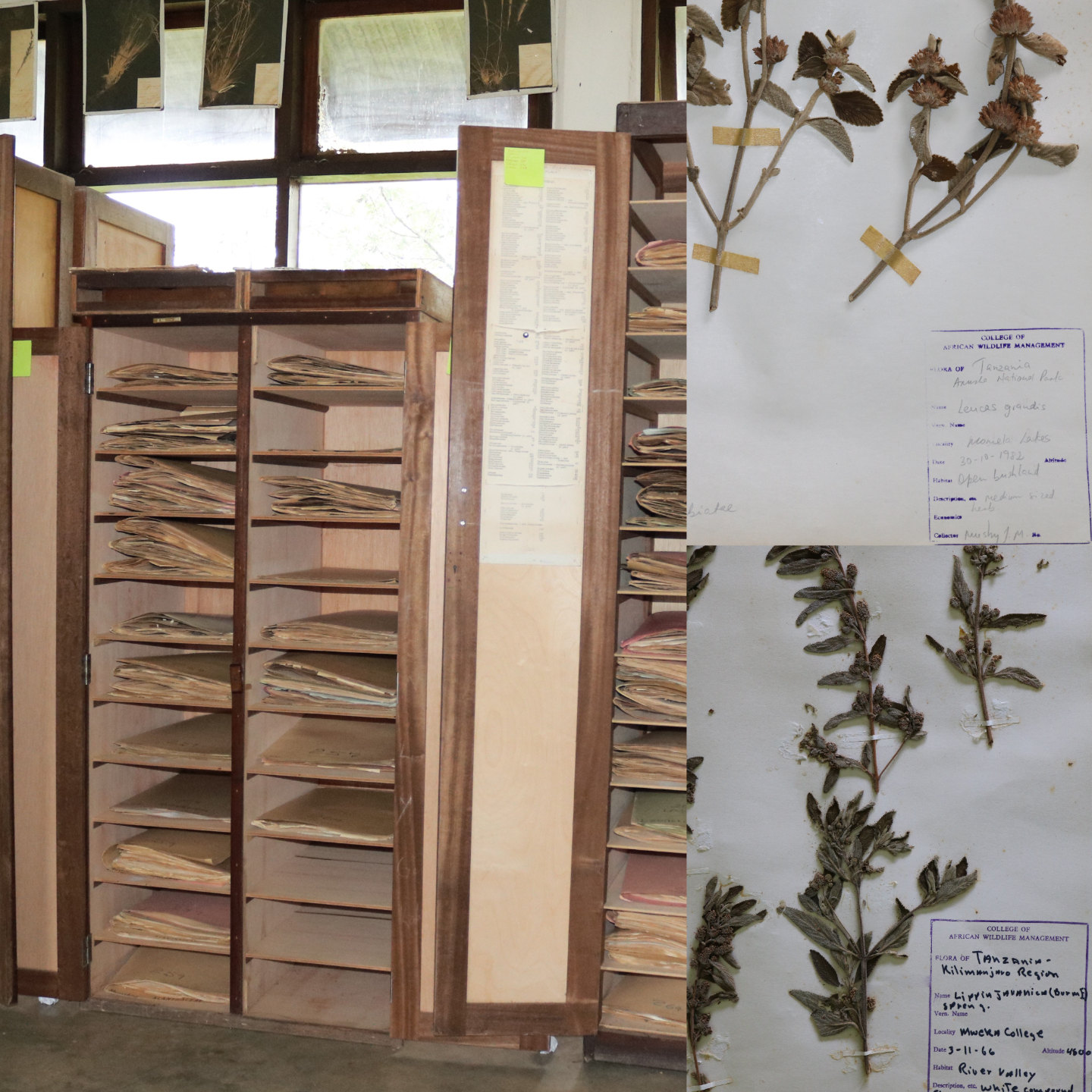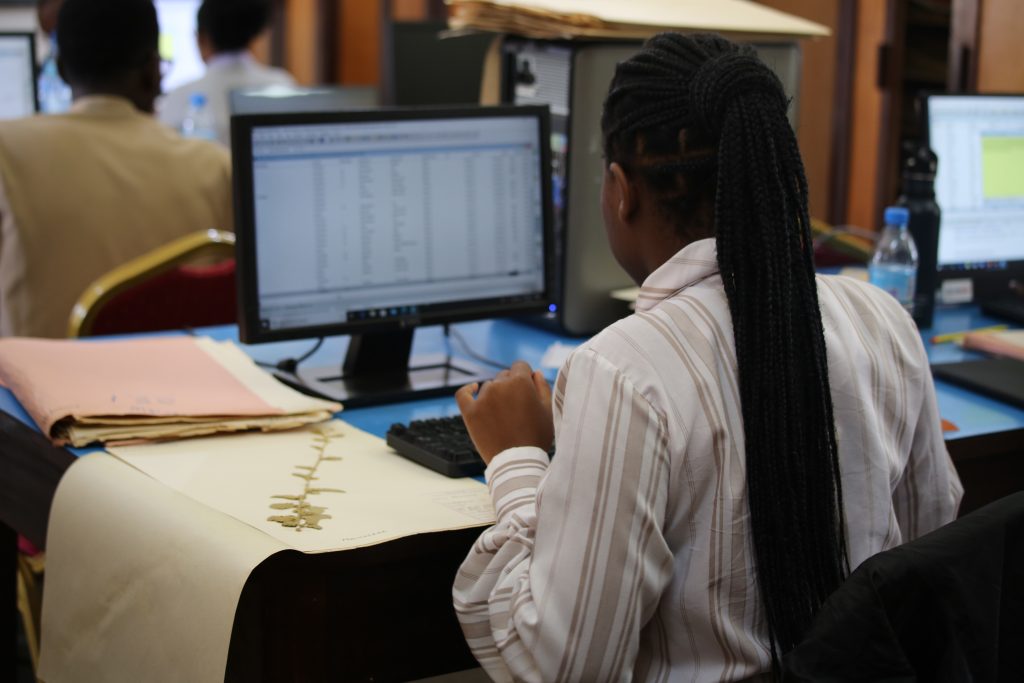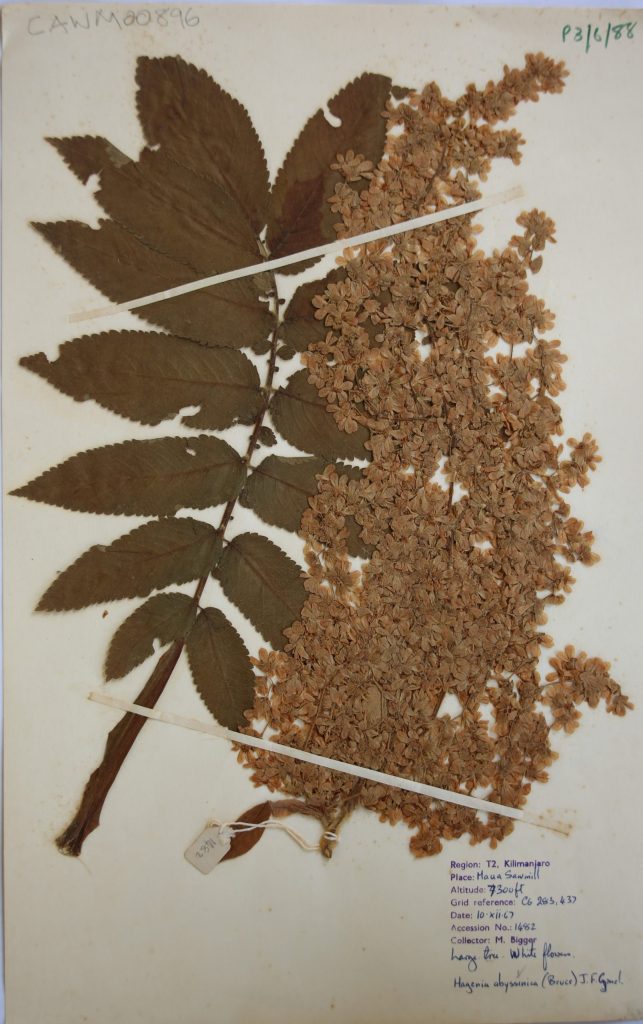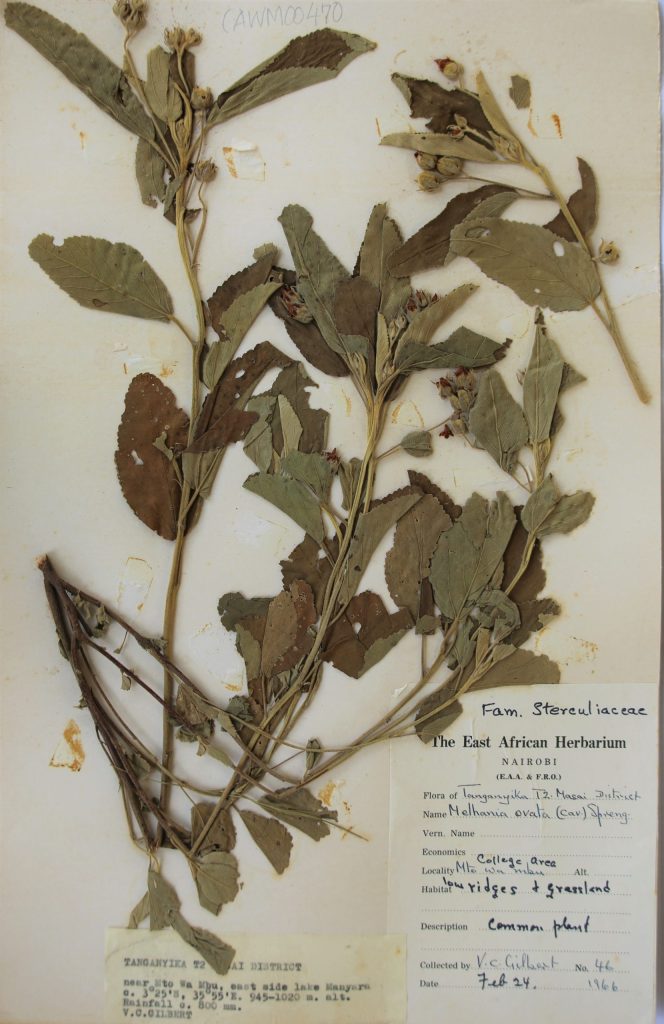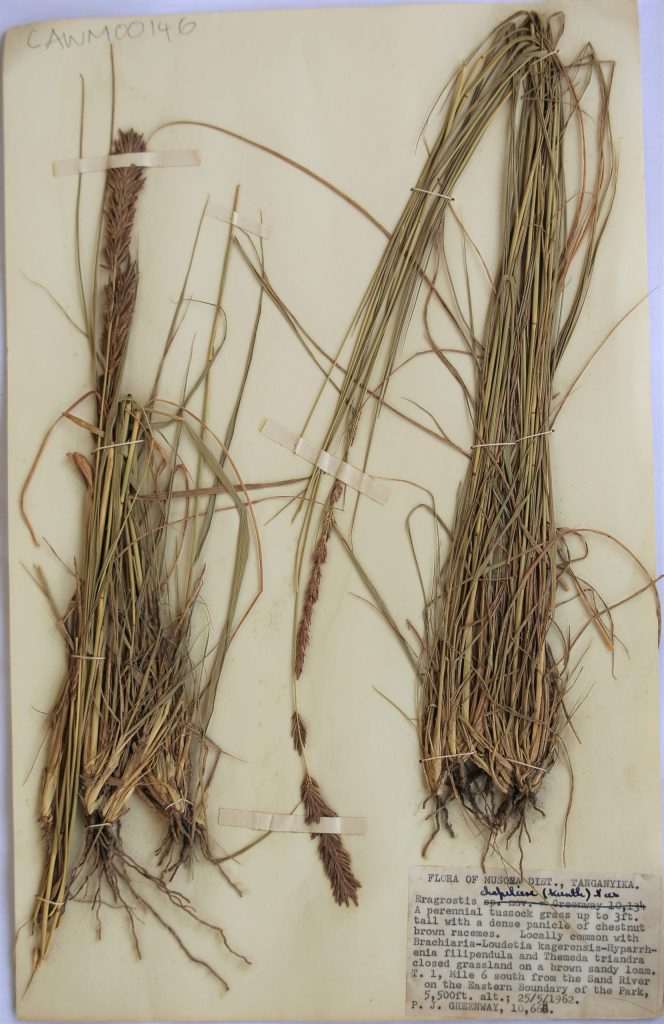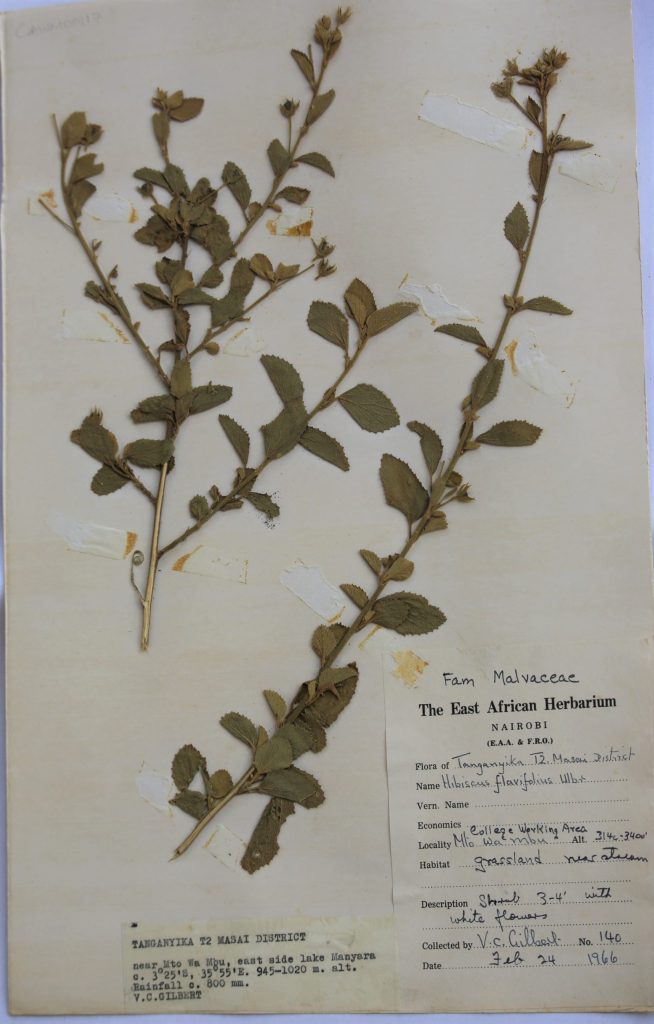![Title_photo Herbarium cabinets with doors opened showing the stored specimens [Left] and well-mounted specimen on acidic mounting sheet [Right]
Copyright © Mweka College](https://imaginingfutures.world/wp-content/uploads/2022/11/Title_photo-500x500.jpeg)
Location
Moshi,
Kilimanjaro Region, Tanzania
Synopsis and Position
Despite the wealth of Mweka Herbarium (hosted at the College of African Wildlife Management, Mweka) in terms of botanical collection (with > 6000 specimen), the collection has been for more than half a decade limited to physical access for research and education. This situation exposed the collection under serious threats of deterioration and/ loss while undocumented because of attack by pests, aging, unfavourable weather, and physical handling. Additionally, physical access hinders remote access by users for research and educational purposes. Therefore, this project seeks to improve preservation and access of botanical specimens deposited at Mweka Herbarium for research and education by wide range of users without risking the quality of the original specimens. The overall outcome of having 6000 specimens annotated, imaged and databased was achieved by digitizing a total of 6020 herbarium specimens comprising of 1746 species belonging to 646 genera and 158 families. The commonest genus was Cyperus (3.9%; n=232), and the family was Poaceae (n=1302). Further result showed that 92% of specimens were collected from Tanzania and the remaining 8% from Kenya since 1960 to early 2000 with the peak collection recorded in 1968. When the global
extinction risk status of each plant species obtained during digitization was evaluated using IUCN Red List of Threatened Species results showed most species were categorized as “Not Evaluated”. However, 36 species were found under the category of species facing high risks of extinction led by species under genus Aloe followed by Euphorbia. On the other hand, the project managed to create a dataset of 6020 georeferenced botanical specimens following a DarwinCore Archive (DwC-A) standards for publication into the Global Biodiversity Information Facility (GBIF). In terms of enhancing professionalism, the project strengthened the capacity of biodiversity technicians and academic staff botanical collection management, digitization workflow and application of natural history databases in data management. Additionally, through this project we created a new collection of 729 specimens of ethnobotanical and conservation significance. This project was critical not only in transforming Mweka Herbarium into the digital ages but also improving preservation of original collections, and remote access of the digital copies by a wider community for research and education popularization. Accordingly, collections found in Mweka Herbarium provide important resources for research to unfold taxonomic and biomedical discoveries, evolutionary histories of species, and in evaluating genetic changes in the face of global changes.
Objectives and Method
The overarching objective of this project is to improve access and preservation of botanical specimen deposited at Mweka Herbarium to improve learning and research. Specifically, the project aims to:
-
- Update the taxonomic information of 6000 specimen deposited in the Mweka Herbarium at the College of African Wildlife Management, Mweka,
- Archive a digital copy of the original specimen to minimize deterioration resulted from physical handling the original specimen,
- Ascertain the conservation status and ethnomedicinal values of specimen deposited in the Mweka Herbarium
- Strengthen the capacity of Mweka Herbarium and Biodiversity Technicians to manage data resulted from digitization and the botanical collections, and
- Showcase the created knowledge, and access to digitally archived botanical collection to end-users.
Workshops and Events
-
- Conduct a workshop to familiarize the project team members with project milestones expected, and the timelines [Completed: 22 November 2022]
- Botanical collection expedition in Lower Moshi Rangelands in Kilimanjaro ecosystem [19-26 June 2023]
- Training workshop on botanical collections, and virtual data management [September 2023]
Activities
- Update taxonomic information for each specimen and digitize the handwritten notes of 6,000 specimen [Completed, 19 May 2023]
- Capture quality digital images of specimen and make a catalogue of images [In progress, expected date of completion: 11 June 2023]
- Prepare local repository system to increase access and usability of botanical collection [In progress, expected date of completion: 30 June 2023]
- Sharing the dataset resulted from digitization with end-users [September 2023]
![Project_photo Rudolf Mremi (PI) displaying specimen deposited at Mweka Herbarium [Top Left], project team members preparing specimen prior to digitization [Top Right & Bottom Left] and a well-mounted specimen ready for imaging [Bottom Right]
Copyright © CAWM, Mweka](https://imaginingfutures.world/wp-content/uploads/2022/11/Project_photo-720x720.jpeg)

